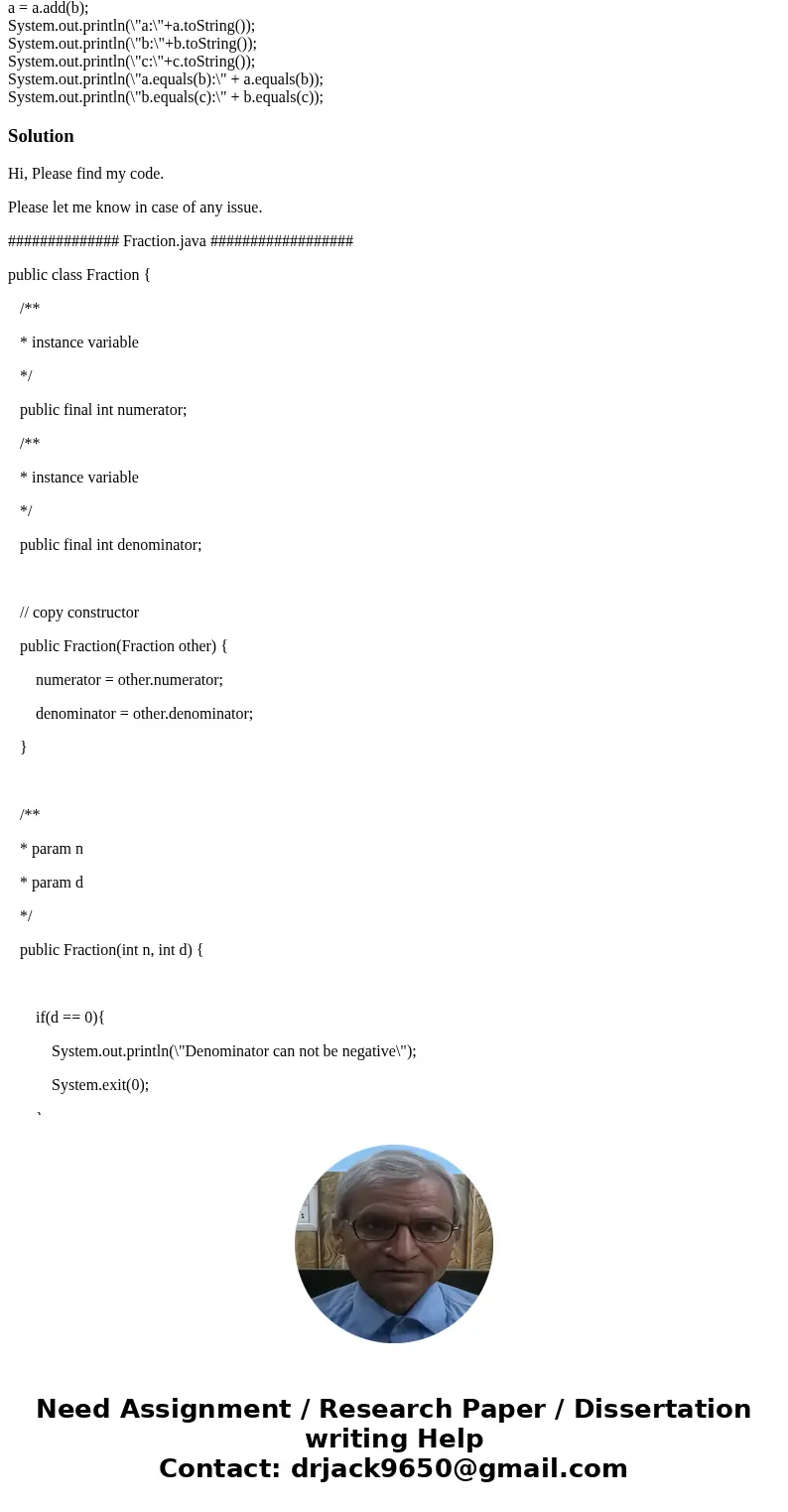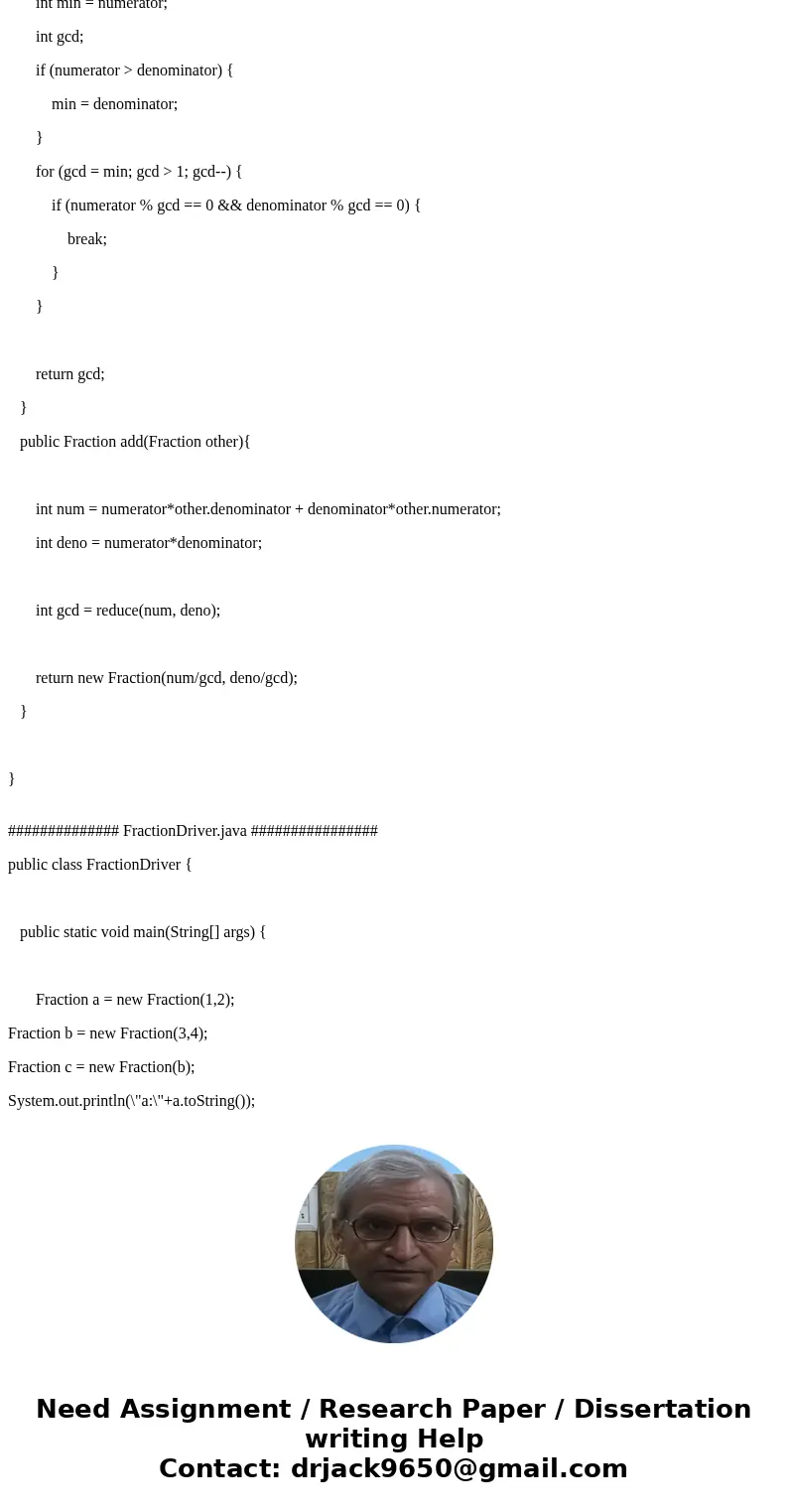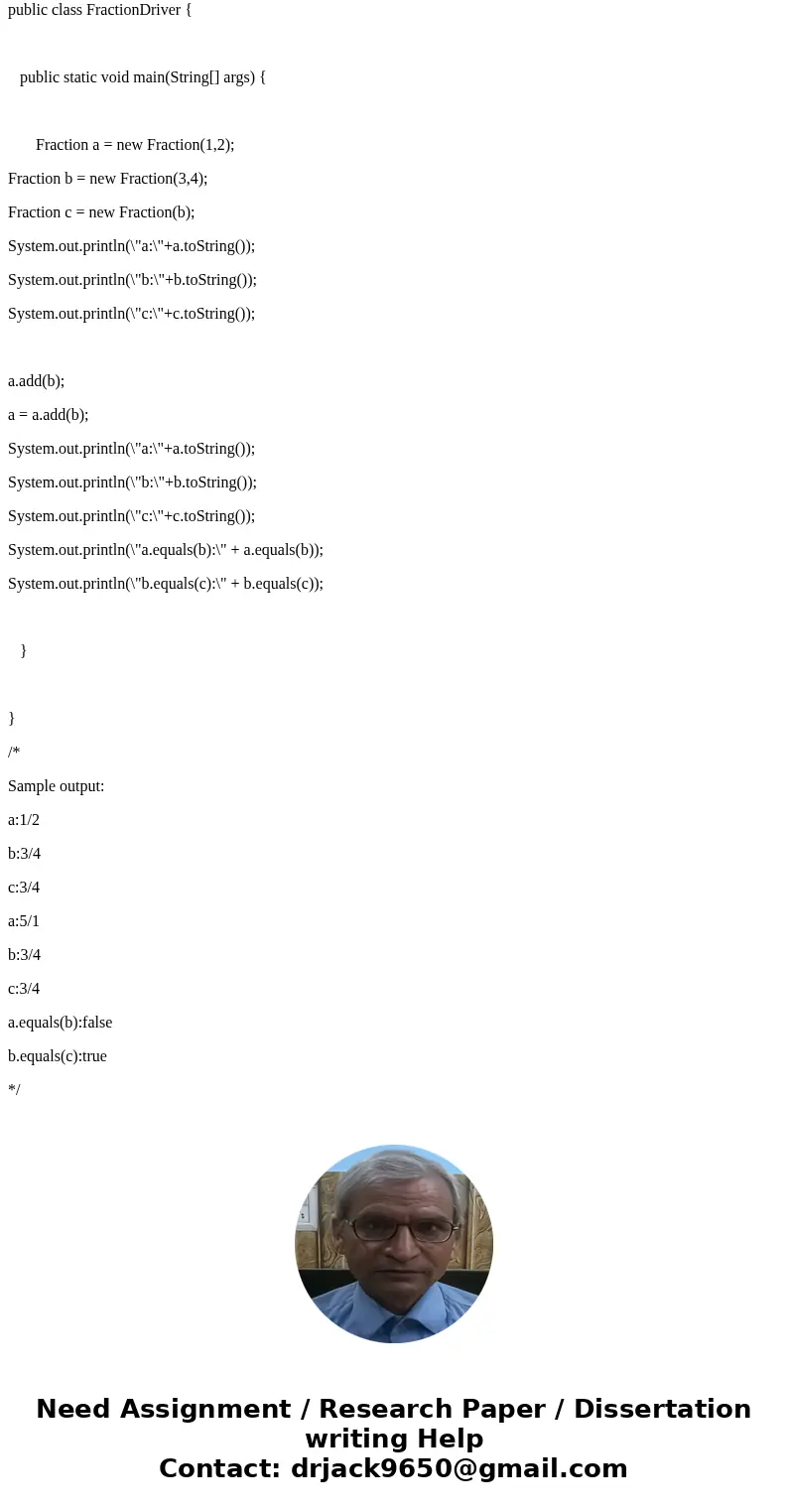Fraction class Numerators and denominators are unchangeable
Fraction class
• Numerators and denominators are unchangeable once set by the constructor.
• No denominator will be stored as a 0. (ie, no DivideByZero Exceptions).
• A Fraction is always in reduced form. (reduce in the constructor to ensure this).
Data
• Define a numerator that is public and final.
• Define a denominator that is public and final.
Methods
• Define a constructor that takes a numerator and a denominator
• Define a constructor that takes a Fraction object and makes a copy of it. public Fraction(Fraction other){…}
• Define a toString() function
• Define an add function that takes a fraction, adds it to this, then returns
a new Fraction object that is the result of the addition of the two o public Fraction add(Fraction that) {//add this and that together,;remember to consider the denominator here!
• Define an equals(Object o) function that has the form:
public boolean equals(Object other)
{ if( other != null && ! (other instanceof Fraction ) ) return false;
Fraction that = (Fraction) other //todo: code goes here
}
Sample Output
a:1\\2
b:3\\4
c:3\\4
a:10\\8
b:3\\4
c:3\\4
a.equals(b):false
b.equals(c):true
//Driver
Fraction a = new Fraction(1,2);
Fraction b = new Fraction(3,4);
Fraction c = new Fraction(b);
System.out.println(\"a:\"+a.toString());
System.out.println(\"b:\"+b.toString());
System.out.println(\"c:\"+c.toString());
a.add(b);
a = a.add(b);
System.out.println(\"a:\"+a.toString());
System.out.println(\"b:\"+b.toString());
System.out.println(\"c:\"+c.toString());
System.out.println(\"a.equals(b):\" + a.equals(b));
System.out.println(\"b.equals(c):\" + b.equals(c));
Solution
Hi, Please find my code.
Please let me know in case of any issue.
############## Fraction.java ##################
public class Fraction {
/**
* instance variable
*/
public final int numerator;
/**
* instance variable
*/
public final int denominator;
// copy constructor
public Fraction(Fraction other) {
numerator = other.numerator;
denominator = other.denominator;
}
/**
* param n
* param d
*/
public Fraction(int n, int d) {
if(d == 0){
System.out.println(\"Denominator can not be negative\");
System.exit(0);
}
// finding gcd of n and d
int gcd = reduce(n, d);
// storing numerator and denominator in reduced form
numerator = n/gcd;
denominator = d/gcd;
}
// toString method
public String toString(){
return numerator+\"/\"+denominator;
}
// equal method
public boolean equals(Object other)
{
if( other != null && ! (other instanceof Fraction ) ) return false;
Fraction that = (Fraction)other;
if(numerator == that.numerator && denominator == that.denominator)
return true;
else
return false;
}
/**
* function to calculate gcd of numerator and denominator
*/
private int reduce(int numerator, int denominator) {
int min = numerator;
int gcd;
if (numerator > denominator) {
min = denominator;
}
for (gcd = min; gcd > 1; gcd--) {
if (numerator % gcd == 0 && denominator % gcd == 0) {
break;
}
}
return gcd;
}
public Fraction add(Fraction other){
int num = numerator*other.denominator + denominator*other.numerator;
int deno = numerator*denominator;
int gcd = reduce(num, deno);
return new Fraction(num/gcd, deno/gcd);
}
}
############## FractionDriver.java ################
public class FractionDriver {
public static void main(String[] args) {
Fraction a = new Fraction(1,2);
Fraction b = new Fraction(3,4);
Fraction c = new Fraction(b);
System.out.println(\"a:\"+a.toString());
System.out.println(\"b:\"+b.toString());
System.out.println(\"c:\"+c.toString());
a.add(b);
a = a.add(b);
System.out.println(\"a:\"+a.toString());
System.out.println(\"b:\"+b.toString());
System.out.println(\"c:\"+c.toString());
System.out.println(\"a.equals(b):\" + a.equals(b));
System.out.println(\"b.equals(c):\" + b.equals(c));
}
}
/*
Sample output:
a:1/2
b:3/4
c:3/4
a:5/1
b:3/4
c:3/4
a.equals(b):false
b.equals(c):true
*/





 Homework Sourse
Homework Sourse